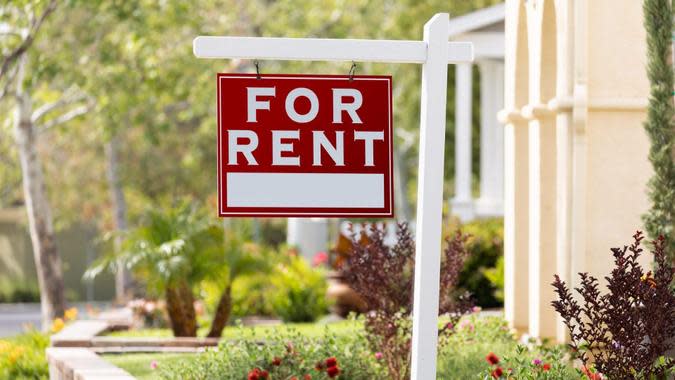11 Ways To Lower Your Cost of Living Without Moving

Cost-of-living expenses are the must-haves: the recurring monthly costs that command a big percentage of your overall budget, such as housing, food, transportation and utilities. And sometimes those expenses can be so overwhelming that you consider moving somewhere cheaper.
Read: 4 Best Money Lessons From Elon Musk
Learn: Pocket an Extra $400 a Month With This Simple Hack
But before you do, take a good, hard look at the amount of money you spend on your rent or mortgage, car payment, insurance, food and utilities. Surely, there's some room for improvement.
To help you identify ways to lower your cost of living, GOBankingRates interviewed a variety of money-saving experts. Here's what they had to say about trimming your living expenses.

Shop For a Lower Energy Rate
Not everyone will be able to take advantage of this tip, but it's worth a shot.
"A simple money-saving tip for those located in states that have deregulated electric and gas utilities is to shop the open market for a lower energy rate," said Paul Rhoads, vice president of EnergyPricing.com "By simply understanding the average price of your local utility (usually displayed on the bill), consumers can look for alternative energy suppliers who are offering lower rates for a fixed term. These fixed terms usually range from six months to 36 months and can help you save up to 30% on your utility bills. A quick example is:
Average Utility Rate: $0.080 / kWh
Best Supplier Rate: $0.060 / Wh (fixed for 12 months)
Annual kWh Usage: 12,000 kWh
Estimated Annual Savings: $240"
'Get Rich Slow': Dave Ramsey Offers the Key to Lasting Wealth
Next: Check Your $2 Bills -- They Could Be Worth Upwards of $4,500

Rent Out Extra Space in Your Home
"One of the best ways to save the most amount of money on fixed living expenses is house-hacking: when you rent out a portion of your living space (like an extra room) to offset the cost of living expenses like rent and mortgage," said Kaitlyn Ranze, senior manager of nav.it.
"Some of the benefits you reap beyond [reducing] financial stress are actually psychological. After house hacking for years, I noticed that I spent less time away from my house, suffered less FOMO, and I was able to tackle household emergencies with a built-in buddy."
Learn More: How To Build Generational Wealth From Scratch

Get Serious About Your Budget
If you aren't focusing your attention on your household budget, you should start.
"One of the best ways you can increase savings, is to analyze and improve your current budget," said Zachary A. Bachner, CFP® of Summit Financial. "By outlining every monthly expense, you are able to find which expenses can be reduced. Whether it is cutting subscriptions, eating out less, or finding ways to carpool in order to save on gas -- there are usually a few ways everyone can save some more money monthly."

Increase Your Credit Score
Your credit score is an indicator of how well you handle credit. Having a higher credit score can help you get better interest rate offers on loans, which means less debt and lower payments.
One way to improve a lower credit score is to use a credit-builder tool. A credit-builder tool, like the ones offered by CreditStrong, holds savings funds for you in a secure account while you make small monthly payments to "pay off" the balance and demonstrate your creditworthiness. Your responsible on-time payments are reported to the credit bureau, which helps improve your credit score.

Contact Your Insurance Broker
Insurance premiums can eat up your budget. Don't be afraid to negotiate a better price.

 Yahoo Autos
Yahoo Autos 